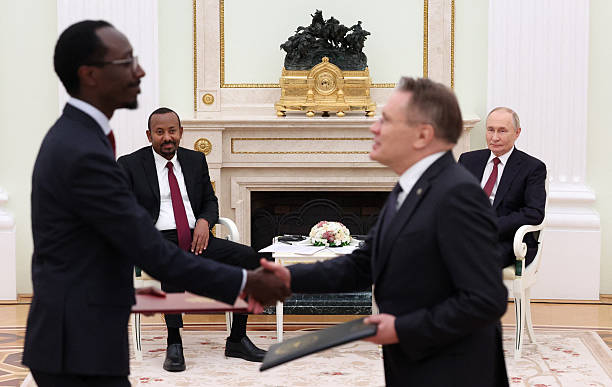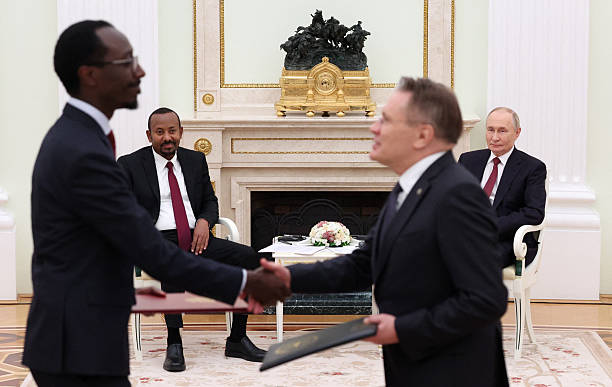Ethiopia has signed a landmark agreement with Russia to build its first nuclear power plant, deepening Moscow’s footprint in Africa’s energy sector. The accord was concluded on Thursday between Ethiopia’s state-owned electricity company and Rosatom, Russia’s nuclear giant, during a forum on nuclear energy in Moscow.
The deal outlines the development of a detailed construction blueprint, including a technical and economic roadmap for the project. It also commits to training Ethiopian personnel to operate the plant and to nurturing the country’s nascent nuclear industry—an ambitious step for a nation still grappling with energy shortages and infrastructure gaps.

This initiative mirrors similar overtures from Niger, where Mining Minister Ousmane Abarchi announced plans to work with Rosatom on two massive 2,000-megawatt reactors while also seeking Russian expertise to exploit Niger’s uranium reserves. As the world’s eighth-largest uranium producer in 2023, Niger is positioning itself to convert its mineral wealth into greater domestic energy capacity. Abarchi stressed that all projects would remain under the oversight of the International Atomic Energy Agency to meet safety and transparency standards.
The announcements underscore a broader trend: Moscow is intensifying bilateral energy and resource agreements across Africa, using nuclear cooperation as a key instrument of influence. Russian President Vladimir Putin, speaking at the World Atomic Week plenary, insisted that Russia reliably fulfils its nuclear commitments regardless of shifting geopolitics. He also emphasized that nuclear safety and security remain “an absolute priority” wherever Russian-linked plants are built.
Putin further revealed that Russia intends to pioneer the world’s first closed-fuel-cycle nuclear energy system by 2030, designed to reuse over 90% of spent fuel. Such technology, if realised, could significantly reduce radioactive waste and ease concerns over global uranium supply—an area where Russia already wields considerable leverage.
This deal highlights Ethiopia’s attempt to leapfrog its energy capacity with high-tech nuclear power—though questions remain about cost, feasibility, and governance. Russia, meanwhile, appears to be leveraging nuclear technology as a strategic tool to cement alliances and secure influence in resource-rich but energy-poor African states. While both sides promise adherence to international safety standards, the projects could test the capacity of local institutions to manage complex, high-risk infrastructure and the broader implications of Moscow’s expanding role in Africa’s energy landscape.



